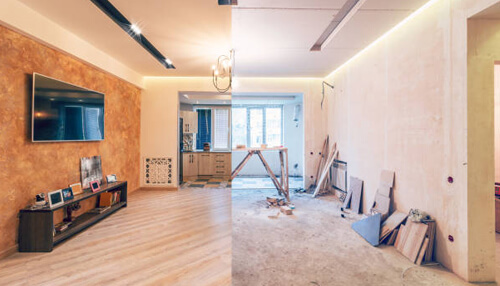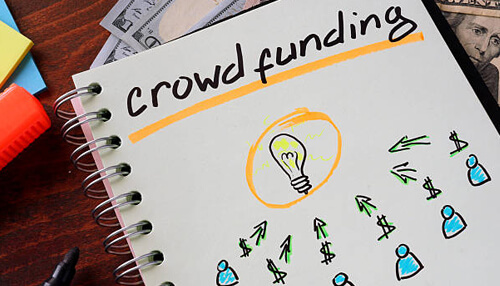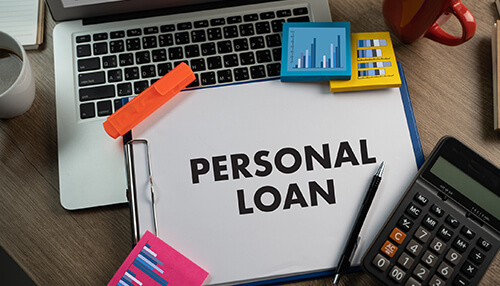Real estate investments are increasing in various parts of the world due to urbanization and other factors. They provide ways to generate more profits and returns. However, those who want to invest in the real estate business should know how to invest a minimum amount. Flipping houses with no money is one of the best ways that allow investors to purchase undervalued properties and sell them at high prices.
A flipping houses allows investors to purchase distressed or undervalued property at low prices. Later, an investor can resell it in markets by making necessary improvements and repairs. While there are many online house-flipping courses on the market for those who are ready to start house house-flipping business, below we provided a quick overview of 10 ways to flip houses without money for those who are still on the fence.
What Are The Ways To Start Flipping Houses With no Money?
1. Finding foreclosures
Investors should find a profitable market because not all flip houses are suitable for selling. It is wise for them to give more importance to the location with attention. Moreover, investors should make sure that the market conditions are right for them when they an area. Anyone who wants to flip a house with no money can choose foreclosures that help generate high profits.
2. Crowdfunding
Crowdfunding is one of the ways to start flipping houses with no money. It is a financing strategy that can work well for new investors. Apart from that, crowdfunding provides ways to get funds from multiple investors that help streamline the process.
3. Short-term funding
An investor should consider acquiring short-term loans to get started flipping a house without money. Private lenders and hard money lenders enable investors to obtain short-term funds for their business based on certain factors.
4. Home equity
Home equity is another option available for investors when they want to flip a house with no money. It makes feasible methods to borrow money based on the equity value and make payments every month. Home equity crowdfunding enables investors to start a business when don’t have any money. At the same time, they should know more about the process in detail that gives ways to accomplish goals. Also, home equity crowdfunding provides ways to raise capital.
5. Seller financing
Seller financing is an ideal choice for those who enter into a flip house business venture first time. Investors can find properties that offer seller financing options. A seller manages the mortgage in this process and provides a loan to a buyer. Different types of seller financing are available for a real estate investor when flipping a house with no money.
6. Wholesaling
Wholesaling is one of the strategies available for investors to make money in a short period. It doesn’t involve purchasing a property, and an investor should sign with a seller. The next step is finding a potential real estate investor in the market and assigning the property. In most cases, a wholesaler will get commissions based on the final sale. This method is especially attractive for those interested in flipping houses with no money, as it requires little to no capital investment upfront.
7. Personal loans
Those who want to flip a house with no money should know about the types of financial claims in detail. Personal loans, stocks, investment bonds, and personal equity plans come under them. They provide ways to receive funds quickly and investors can repay them with ease.
8. Forming a partnership
Investors who are new to a business venture such as house flipping can consider forming a partnership with others. It is the best option for those who want to flip a house with no money.
9. Live-in flip
Live-in flip is ideal for investors to meet their needs in the real estate business. This is because people can buy a property and renovate the same when they live there.
10. Business loans
Many banks and private institutions offer business loans for start-ups under financial claims that help improve the cash flow. Investors should know the interest rates before choosing a lender. For those interested in flipping houses with no money, securing the right financing options is crucial to ensuring profitability without significant upfront costs.
Pros and Cons of Flipping Houses Without Your Own Money
Pros:
-
Low Initial Investment
Flipping houses without your own money allows investors to get started in the real estate market without a significant upfront financial commitment. It provides an opportunity to generate profits with minimal personal risk. -
Leverage Other People’s Money
Investors can leverage other people’s money through options like crowdfunding, partnerships, and loans, allowing them to access larger capital for higher potential returns. -
Fast Returns
If done correctly, flipping houses can provide quick returns on investment. Investors can purchase distressed properties, renovate them, and sell at a higher price, often within a short period. -
Increased Profit Potential
By not using their own money, investors can spread their funds across multiple properties, increasing the potential to earn larger profits by diversifying their investments. -
Building Experience with Lower Risk
By using other people’s money, investors can gain valuable experience in the real estate market without risking their own capital. This can help build knowledge and credibility for future ventures.
Cons:
-
High Risk
Flipping houses without your own money still carries risks. If the market conditions change, or if there are unexpected repair costs, it can lead to financial losses, especially when working with borrowed or investor funds. -
Debt and Interest
Many of the methods used to flip houses without personal money, such as loans or seller financing, involve paying back borrowed funds, often with interest. This means that investors must factor in additional costs, which can eat into their profits. -
Dependence on Others
Crowdfunding or forming partnerships relies on other people’s money. If investors can’t secure the right funds or partnerships, their ability to flip houses may be limited. Additionally, managing other people’s expectations and timelines can become challenging. -
Limited Control
When using external financing or partnerships, investors might have to share control over decision-making. This can limit flexibility and lead to potential conflicts with partners or lenders. -
Not Ideal for Beginners
Flipping houses without your own money can be complex and challenging, especially for those new to real estate. It requires an understanding of financial strategies, market conditions, and negotiation skills, and mistakes can be costly.
Overall, flipping houses without your own money can offer lucrative opportunities but comes with its own set of challenges and risks that investors must carefully consider.





